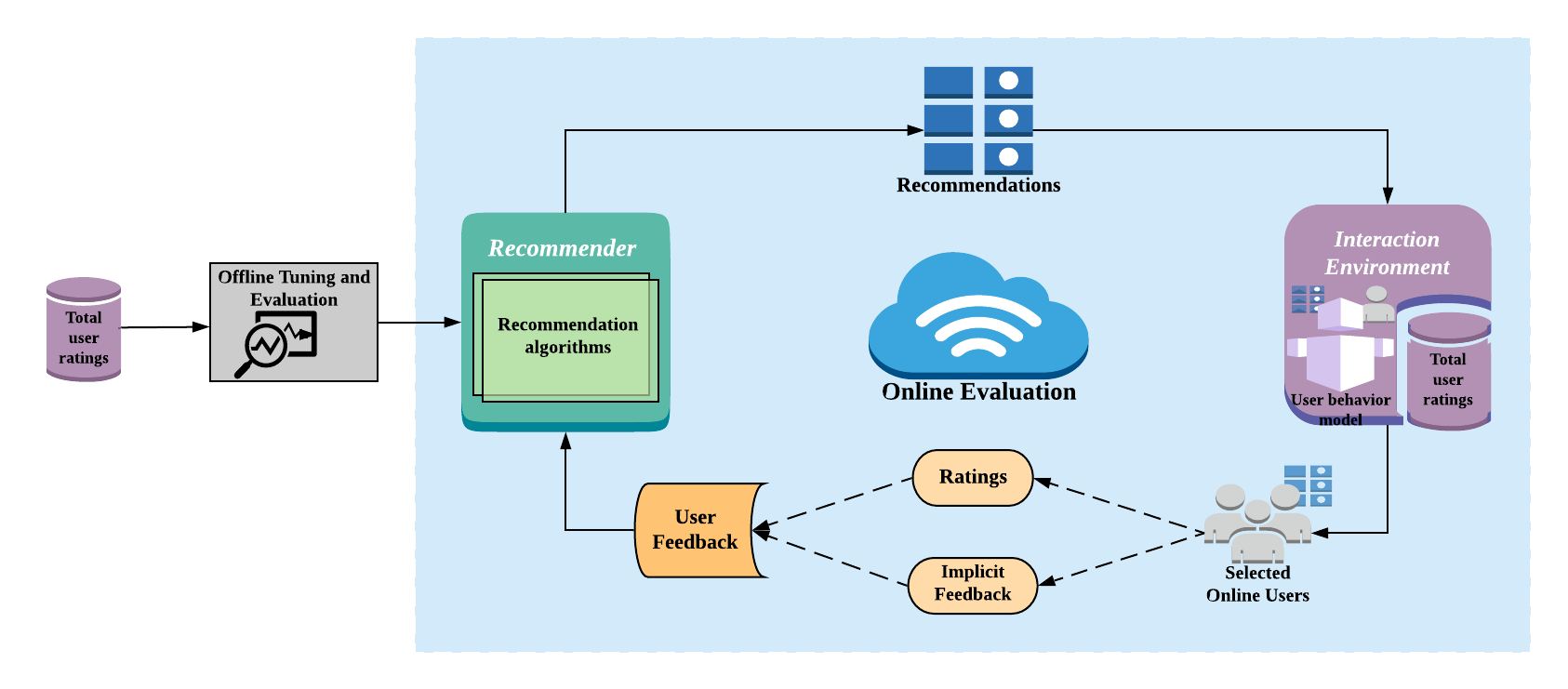RecLab is a simulation framework used to evaluate recommendation algorithms. The framework makes no platform-specific assumptions. As such, it can be used to evaluate recommendation algorithms implemented with any computational library.
Reclab is under active development. If you find a bug or would like to request a new feature please file an issue. Furthermore, we welcome a broad set of contributions including: documentation, tests, new environments, reproduced recommenders, and code quality improvements. Simply fork the repo and make a pull request.
This section contains a brief guide on how to get started with RecLab.
RecLab was developed and tested in Python 3.8. To install RecLab run
pip install reclab
RecLab also implements a set of benchmark recommender systems, however the default
pip install command will not fetch the necessary dependencies. To fetch these dependencies
you must have g++ 5.0 or higher and python3-dev
installed. You should then run
pip install reclab[recommenders]
which will install both the core reclab framework and the benchmark recommendation algorithms.
The code below shows a simple use-case with random recommendations.
import numpy as np
import reclab
env = reclab.make('topics-dynamic-v1')
items, users, ratings = env.reset()
for _ in range(1000):
online_users = env.online_users()
# Your recommendation algorithm here. This recommends 10 random items to each online user.
recommendations = np.random.choice(items, size=(len(online_users), 10))
items, users, ratings, info = env.step(recommendations)
env.close()This section briefly outlines the overall design of RecLab, and how to add new environments.
Evaluation in RecLab consists of two basic components: Environments and Recommenders. An environment consists of a set of users and items. A recommender and an environment interact iteratively. At each time-step the environment specifies a set of online users that need to be recommended an item. The recommender uses the history of user-item interactions to either recommend a single item (top-1 recommendation), or a set of items (slate-based recommendation) to each online user. The environment then provides ratings to some of, or all, the recommended items.
Below is a visualization of the interaction between environment and recommender.
In RecLab all environments inherit from the Environment interface. The following methods must be implemented:
reset: Reset the environment to its original state. Must be called before the first step of the simulation.online_users: Return a list of available users at each timestep.step(recommendations): Givenrecommendations, update the internal state of the environment and return the following data:users: New users and users whose information got updated this timestep, along with any side information about each user.items: New items and items whose information got updated this timestep, along with any side information about each item.ratings: New ratings and ratings whose information got updated this timestep, along with any side information about each rating.info: Extra information that can be used for debugging but should not be made accessible to the recommender.
To see a description of available environments see the list of enviroments.
RecLab does not assume recommendation algorithms are implemented in any specific way. However, we also provide a convenient interface to simplify the design of new recommendation algorithms.
To see a description of available recommenders see the list of recommenders. Note that you must install the optional dependencies to use some of these recommenders as outline under the setup section.
Coming soon: More functionality for running experiments and custom performance metrics.
